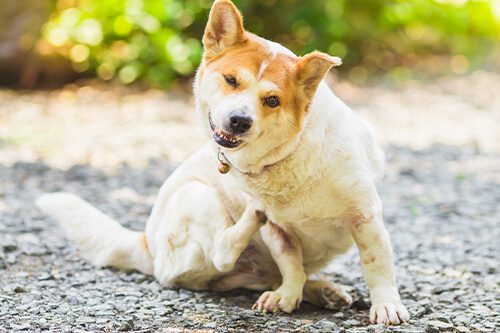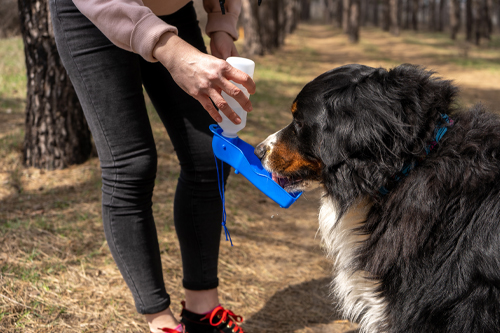Puppy Vaccinations in Ukiah, CA: When to Get Them and Why
So, you have a new furry addition to your family, and you are thinking about all the necessary steps to take in order to ensure that you start off your new journey together on the right foot. As you know, vaccinating your puppy is crucial to his or her wellbeing and health going forward, and getting the necessary initial vaccinations is the first step to making sure that a happy and healthy future lies ahead. Dog vaccinations help the immune system prepare to fight and prevent infections and diseases that can be fatal to your puppy (and even to you). But how soon do you get started and how often will your baby have to get vaccinated? Read on to find out.
The Importance of Puppy Vaccinations in Ukiah and Following a Schedule
Dog vaccinations are important throughout your pet’s life, but they are especially essential during the first year of the life of your puppy. Constant vet visits can seem annoying and inconvenient. Moreover, all the information about the variety of different vaccinations can be confusing and can make it hard to figure out which vaccinations are necessary, and which ones can be optional. The cost is another thing to factor in when you are working with your vet to get educated on dog vaccinations and their importance, and to establish a course of action and a vaccination schedule. Discussing options with your vet is of utmost importance. Rabies vaccinations, in particular, cost less and can sometimes be included in the cost of initial vet visits depending upon the animal hospital. The good thing about initial vaccinations is that they can be free or very cheap if you adopt a puppy from a shelter. Shelters are always full of wonderful, sweet puppies in need of a good home, and you can not go wrong if you choose this route. In most cases, if you get a puppy from a shelter, he or she will have already received initial vaccinations and be on an established vaccination schedule. You would just have to keep following it.
Puppy Vaccination Schedule
Even though there are generally accepted guidelines for the puppy vaccination schedule for the first year of life, schedules and time frames vary between states and countries. The general condition and unique circumstances of your puppy also play a role in determining what is necessary and what is not. While not every puppy will need every single one of these vaccinations, you should never try to determine that for yourself. Always seek the opinion of a veterinarian who is familiar with your pet, his or her medical history, and his or her living conditions. In most cases, this will be your vet. Here are the general guidelines for first-year dog vaccinations:
- six–eight weeks: distemper and parvovirus
- ten–twelve weeks: DHPP (distemper, hepatitis, parainfluenza, parvovirus)
- sixteen–eighteen weeks: DHPP and rabies
- twelve–sixteen months: DHPP and rabies
Keep in mind that DHPP vaccines are to be administered every one to two years, and rabies vaccinations are to be administered every one to three years as required by law.
The general guidelines for optional vaccinations are as follows:
- six–eight weeks: Bordetella;
- ten–twelve weeks: influenza, leptospirosis, Bordetella, and Lyme disease;
- sixteen–eighteen weeks: influenza, leptospirosis, Bordetella, and Lyme disease; and
- twelve–sixteen months: coronavirus, leptospirosis, Bordetella, and Lyme disease.
The need for these vaccinations will depend upon your puppy’s needs and lifestyle and on the recommendations of your vet. Other optional vaccinations for influenza, coronavirus, leptospirosis, Bordetella, and Lyme disease can be administered every one to two years.

Recommended Dog Vaccinations in Ukiah, CA
Let’s look at a breakdown of information about the core puppy vaccinations and the diseases they ward off. Remember that puppies younger than four months of age are most vulnerable to these dangerous diseases.
Distemper
This disease has the nickname “hard pad.” The reason for that is because it causes the pads on puppies’ paws to thicken and harden. Distemper is airborne and is spread through sneezing and coughing or by shared food and water bowls. This disease has no cure and is caused by a virus that targets the gastrointestinal, respiratory, and nervous systems. Symptoms include fever, coughing, vomiting, seizures, paralysis, diarrhea, nose and eye discharge, and even death.
Since the disease cannot be cured, treatment focuses on providing some elevation of the symptoms and on preventing secondary infections. In some cases, even though extremely rare, if the infected puppy somehow survives distemper symptoms, there is a chance that his or her immune system will have a shot at fighting off the disease.
Parvovirus
This virus is highly contagious and also attacks the gastrointestinal system. The disease can be fatal, and puppies can die within forty-eight to seventy-two hours of showing symptoms. Like distemper, parvovirus is also uncurable. If secondary symptoms can be prevented, there is a chance that the puppy’s immune system can beat the illness, but just like with distemper, the likelihood of that is very slim.
Symptoms include fever, vomiting, loss of appetite, and severe diarrhea.
Hepatitis
Mild cases of hepatitis can be overcome, but if it progresses to its advanced stages, it can be fatal to your puppy. Like in the cases of distemper and parvovirus, there is no cure for hepatitis either.
Canine hepatitis is unrelated to the human form of the disease. In dogs, it targets the kidney, spleen, lungs, liver, and eyes, and symptoms can include fever, vomiting, jaundice, pain around the liver, and enlargement of the stomach.
Rabies
Rabies is fatal to both animals and humans, and dog vaccinations against it are required by law in most states. It attacks the central nervous system and causes anxiety, hallucinations, headaches, aggression or uncharacteristic affection, unusual behavior, drooling, paralysis, fear of water, etc.
This disease is usually transmitted by getting bitten by an infected animal.
Vaccinating your puppy is vitally important. Don’t let lack of information, misinformation, or confusion get in the way of protecting your pet against these dangerous and incurable infectious diseases. Always keep your vet updated about how your puppy is doing and don’t deviate from the dog vaccination schedule that you and your vet at Mendocino Animal Hospital have established.
Recent Posts
7 Tips for Helping Your Dog with Their Allergies
Allergies can be as uncomfortable for our dogs as they are for us. Watching your dog scratch,…
My Cat Keeps Sneezing, Is This Normal?
Have you noticed your cat sneezing more than what seems usual? It’s common to feel a bit…
Dog Dehydration: Signs to Watch for and How to Protect Your Pet
When our pets aren’t feeling their best, they rely on us to notice the signs and get…
Canine Respiratory Virus: What Every Pet Parent Should Know
Welcome to our blog at Mendocino Animal Hospital, where we’re committed to keeping your pets healthy and…
Why is My Dog Coughing?
Hearing your dog cough can be worrying. You might wonder if it’s a sign of something serious…
About Mendocino Animal Hospital
At Mendocino Animal Hospital, we believe in fostering the human-animal bond with excellent veterinary medicine. Our full-service veterinary practice operates in Ukiah, CA with a team of skilled veterinarians and a passionate, talented support staff who make you feel like a part of the family.
As an AAHA-accredited animal hospital, every service and aspect of our practice meets AAHA’s Standards of Excellence. No matter what your pet comes in for, they’ll receive only the best in care, compassion, and service.





